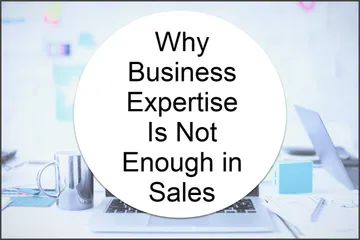There’s a crazy truth we all know in our hearts but seem to be in denial of.
Business is human.
Not in a “we legally regard corporations as people” kind of way—although I’m still in denial that we’ve written that idiocy into law. No, it’s the fact that decisions don’t get made impartially, like a computer running algorithms and weighing data equally. Decisions get made by people; social creatures with ego, bias and emotions. People who are afraid of change, who must protect their egos and reputations. People who want power and money. People who want to look good in front of others they respect. People who want to be kind to people they care about.
It’s people that decide whether initiatives will succeed. It’s people that approve budgets and sign contracts. It’s not the business, it’s people that make buying decisions.
Have you ever lost a sale that you knew was the best decision for the company? You had the best product, the best way to do business. It saves money, increases revenue, and fixes the very problems your decision-makers complain about. And yet, they said no.
How could that be?! You relive your presentation in your head, patting yourself on the back for high-lighting every logical reason to make the purchase, finally dismissing your buyers for their inferior business savvy.
But were they really the problem?
The truth is that business is a logical, scientific, reasonable game. But it is equally social, emotional, and irrational. It is human.
In sales, you must attend to both the technical and human sides of business. It’s not enough to have technical knowledge of your product or service. You must understand what using your service will mean to the buying influences involved. Does approving the change have a negative impact on them? Perhaps it reverses a project they’d previously sponsored, making their past efforts a “bad decision.” Maybe it automates the part of the job they find most rewarding. It could lower operating costs by requiring them to fire someone they like. Or it could reveal their slow technology learning curve.
Through the sales process, we need to prioritize asking questions about—and truly understanding—the perceived impacts, wins and losses of making the purchase for each one of the contacts we’re working with. The more we know about what’s important to them, how they win, and how we can help them as individuals, the more likely they are to say yes to the sale.
That makes me so happy I could get emotional. Perhaps being human isn’t all bad.

